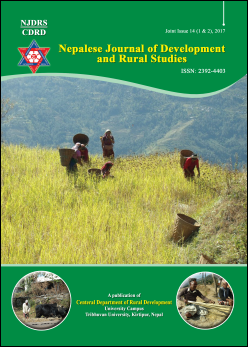Caste-based Discrimination in Schooling: A Narrative Inquiry
DOI:
https://doi.org/10.3126/njdrs.v14i1-2.19648Keywords:
Discrimination, Socio-cultural situatedness, Narrative, Dalitization and transformative-educationAbstract
This paper based on my MPhil dissertation which attempts to exemplify the way of caste-based discrimination practices around schools premises. The Dalit teachers who underwent various forms of such discrimination practices in their school life at different places of Dhading District are the narrated life hi/stories while pledging narrative inquiry. The method was developed with interpretive research paradigm as narratives had immeasurable potentialities to construct meaning of socio-cultural situatedenss of Dalits’ lives and caste-based schooling approach. I, as narrative inquirer, affirmed Freirean perspective to get insight on the nature of Dalit discrimination at school and the way they cope with it. Due to discrimination, there would be high rate of irregularity and dropout even still there is. However, at this context due to various reasons and efforts flexibility (improvement) is being taken places against caste-based discrimination at school in the name of inclusivity, encounters aged-long concept of social exclusion, in present days. It is, perhaps, because of transformative educational approach for a few decades. Transformative education is one of the best means to address Dalit issue with the advocacy of equality and equity. It is significant green signal of transforming ranked society into democratic one.
Nepalese Journal of Development and Rural Studies
Vol. 14 (Joint issue) (1&2), 2017, Page: 56-62Downloads
Downloads
Published
How to Cite
Issue
Section
License
© Copyright by Central Department of Rural Development




